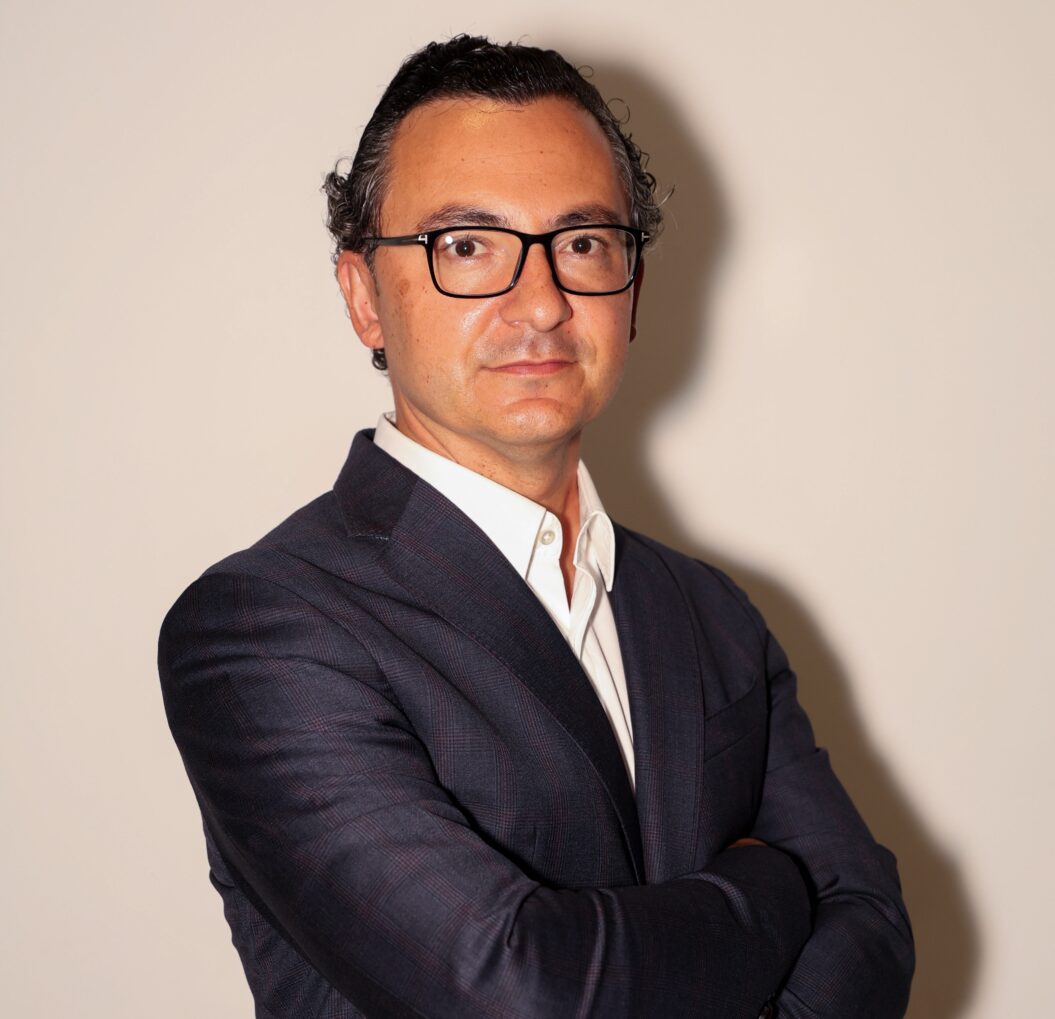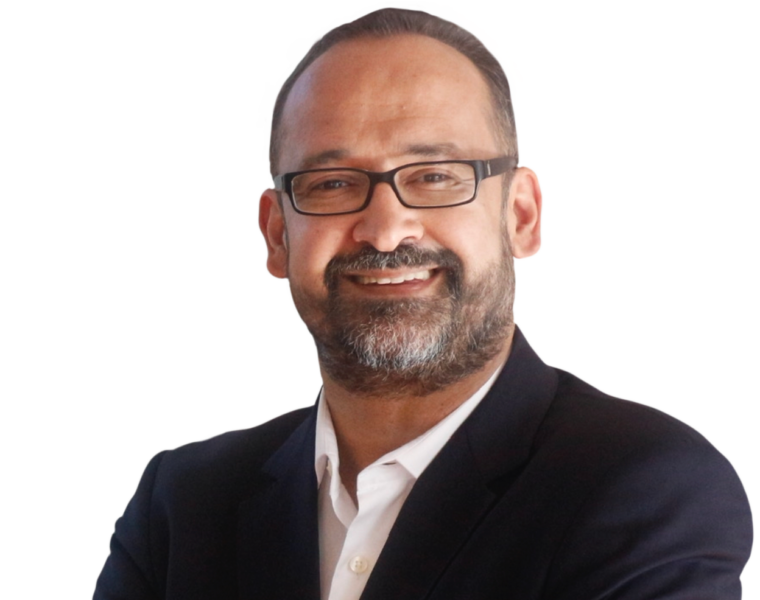As part of the partnership between the Portuguese Diaspora Council and Jornal de Negócios, Márcio Brochado Correia, Chief Digital & Information Officer at DSM-Firmenich Animal Nutrition & Health, and Counselor of the Western Europe Regional Hub, was interviewed by Jornal de Negócios. In the interview, Márcio Brochado Correia discussed his professional journey and identified competitive opportunities for Portugal, its economy, companies, and entrepreneurs in general.
1 – WHAT LED YOU TO LEAVE PORTUGAL?
During my Erasmus programme in England in 1999, I realised that although Portugal is the best country in the world, in terms of work we still had much to learn from other cultures and countries. This was especially true at a time when, unlike today, it was not common to have colleagues of various nationalities at the office or university — they were almost all Portuguese.
This experience sparked in me a desire to one day leave Portugal, which I eventually did in 2008, when I felt I had gained the personal maturity and professional ambition to grow faster, to learn from the best professionals in other regions — to compete and learn on a larger scale.
2 – WHAT ADVANTAGES OR DISADVANTAGES HAS THE FACT THAT YOU ARE PORTUGUESE BROUGHT YOU?
No disadvantages. Perhaps only a preconceived image of the Portuguese: hardworking and trustworthy people, but not always associated with high value-added tasks. That perception — and perhaps the lower expectations — actually worked to my advantage. Our flexibility in handling diverse tasks has led to a recognised versatility, unlike other nationalities that tend to be more specialised and “structured.”
Another advantage is the legacy of previous generations of emigrants — often less academically educated but highly valued for their technical skills, strong work ethic, dedication, responsibility, and reliability. I feel very proud to be part of a more recent generation of emigrants and to see the respect that the countries we move to have for the Portuguese.
I even recall a situation in Switzerland, when registering for car insurance: because I was Portuguese, I was offered a lower annual rate, similar to that of a Swiss or German driver. The insurer explained: “The Portuguese come here to work, to earn some money, which they save and send back to Portugal, so they use the car less and drive more carefully, having fewer accidents.”
My thanks go to all generations of Portuguese emigrants for their professionalism, citizenship, and competence. We should be proud!
3- WHAT OBSTACLES DID YOU HAVE TO OVERCOME AND HOW DID YOU DO IT?
One of the main challenges was the language. German is not an easy language to learn, and in many parts of Germany and Switzerland not everyone speaks English well — or makes the effort to do so. There’s also the fact that we have to rely entirely on ourselves. We lose the support network that surrounds us at home and in daily life — especially emotional support. Even though communication is now easier thanks to smartphones and video calls, once those calls end, we are alone again.
Growing means stepping out of our comfort zone, forcing ourselves to remain in situations of vulnerability and discomfort. These are new feelings we’re not used to, but we must face them — and they help us grow.
I had to adapt to the customs, structure, and at times the certain “rigidity” of the rules that we’re not accustomed to in Portugal. I believe we should value more the spontaneous way we approach life. In many countries, customs and people are much more structured, and while we should learn from that, we must not lose our spontaneity — it’s an invaluable trait, both in our work and especially in the way we face life.
4 – WHAT DO YOU MOST ADMIRE ABOUT THE COUNTRY YOU ARE CURRENTLY IN?
Without a doubt — organization, structure, precision, and quality. I’ve been living in Switzerland for 14 years, and here, everything works. Public transport, public services, healthcare — everything runs efficiently. It’s a society that quickly understood that to be the best, you must have the best professionals. As a result, most of my colleagues aren’t even Swiss, but from all around the world, because in the end, what truly matters is excellence.
It’s a country that has managed to preserve its independence and sovereignty without cutting ties or losing connection. On the contrary, many meetings between world leaders on sensitive issues — such as wars or trade agreements — often take place in Switzerland. In other words, the country understands that in a global world, we must remain connected and relevant, while still preserving our individuality, identity, and sovereignty.
5 – WHAT DO YOU ADMIRE MOST ABOUT THE COMPANY / ORGANIZATION YOU ARE IN?
We should strive to be the best — without fearing the responsibility or the risk of others wanting to take our place. When we are the best, or the first, we have the responsibility to lead an industry or a segment. We must respect our competitors, partners, and clients, who expect us to innovate and to meet not only their current needs but also those of the next 20 years.
This creates pressure and expectations that can only be managed within a company culture built on respect — for people, for the planet, for results, and for the impact we create.
6 – WHAT RECOMMENDATIONS DO YOU HAVE FOR PORTUGAL, ITS ENTREPRENEURS AND MANAGERS?
They should have ambition and always position themselves close to the best. There is no reason why we should have Portuguese people in leadership or technical specialist roles in major companies around the world, yet still feel “small” or less capable when we are in Portugal. We are — and can be — the best at what we do!
That was also one of the reasons I left the country. Not all entrepreneurs and managers lead with a focus on being the best or with a medium- to long-term strategy. Too often, the perspective is purely operational: ensuring success today and leaving tomorrow for later. We need boldness — to challenge the status quo and to see companies as a whole, as something greater than ourselves and our personal ambitions. Look beyond our borders, see what other companies in the same or different industries are doing. Don’t be afraid to copy — and improve — what already exists.
We need to invest more in developing our managers and leaders. The world has changed — and it’s changing faster than ever. Companies go through cycles of growth and challenge, and each phase requires leaders with different skills, often incompatible with those who happen to be leading at the time. Promote those in the layers below, give opportunities to younger people — often better educated and better prepared — and focus on developing people, because they are the ones who truly make the difference.
7 – IN WHICH SECTORS OF THE COUNTRY WHERE YOU LIVE CAN PORTUGUESE COMPANIES FIND CUSTOMERS?
I wouldn’t exclude any sector where we can generate value, but we shouldn’t focus on repetitive, low value-added products or services, as we will never be able to compete on price with other countries. We have excellent schools and universities, a startup ecosystem that is beginning to gain international recognition, and top-level professionals working in leading companies all over the world. We should focus on services and industries where we can do better — and at a more competitive cost — than most other countries; in those areas, we will certainly come out ahead.
Since Portugal is essentially a service-based economy, I believe it’s important that we consciously further develop our industrial sector. We have some case studies in manufacturing that deserve to be scaled up, both industrially and in terms of specialisation — for example, the work of our artisans, which is not so different from that of a Swiss master watchmaker. We have the artistry and the skill to succeed in areas that today remain largely unexplored.
8 – IN WHICH SECTORS IN PORTUGAL COULD COMPANIES IN THE COUNTRY WHERE YOU ARE WANT TO INVEST?
I believe that areas related to climate change — such as electric vehicles, renewable energy, and microprocessors — have great potential. There may also be opportunities in other sectors, such as agri-food, construction, healthcare, and information technology, especially if they focus on quality and innovation, two key factors for Switzerland.
9 – WHAT IS THE COMPETITIVE ADVANTAGE OF THE COUNTRY YOU ARE IN THAT COULD BE REPLICATED IN PORTUGAL?
There are several, but I would once again highlight the mindset of wanting — and truly feeling — to be the best, as this also attracts the best people to work with them.
Another important aspect, without touching on politics, is the role of the State. Public service in Switzerland is highly efficient and differentiated — everything works quickly, without bureaucracy, and with competent professionals in a wide range of roles. In the past, public service attracted many talented people because it was seen as “a job for life.” That criterion no longer applies. Any young talent today seeks fair pay, opportunities for growth, and recognition.
I believe Portugal has much to learn in this regard. The state apparatus — particularly public services — must function efficiently so that people and companies want to stay here. And in areas where we believe the private sector can do better, we should have the courage to establish those public–private partnerships.
10 – ARE YOU THINKING OF RETURNING TO PORTUGAL? WHY?
Of course. I have worked in many countries, and due to my profession, I travel regularly all over the world, but there is only one country I call “home”: Portugal.
Perhaps it will be when I retire… or maybe earlier, as an entrepreneur with my own company. The future will tell. Until then, I will continue contributing to my country from abroad, supporting expatriates like myself, and assisting companies that want to expand internationally or Swiss companies that may wish to invest in Portugal — because this is part of my responsibility to give back and show gratitude to a country that has given me culture, education, family, and values!







